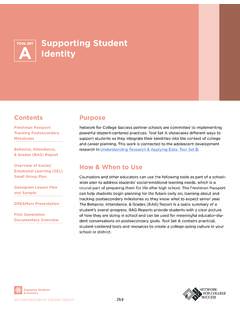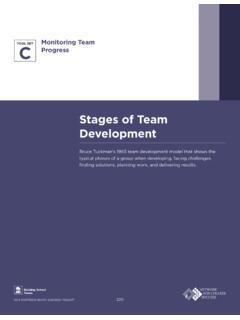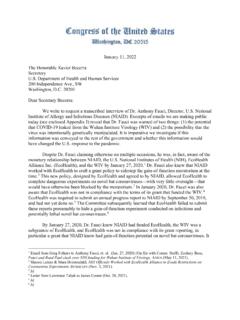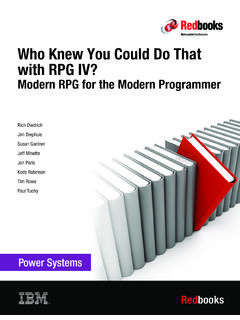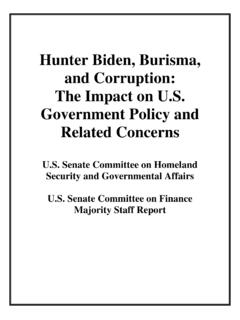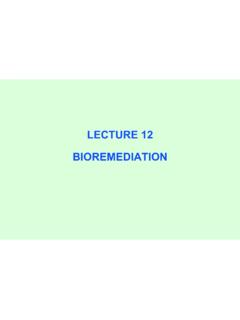Transcription of Willing to Be Disturbed - University of Chicago
1 89 Developing Postsecondary LeadersNCS POSTSECONDARY SUCCESS TOOLKIT89 Unpacking Adult MindsetsTOOL SET BWilling to Be DisturbedA chapter from Margaret J. Wheatley s Turning to One Another: Simple Conversations to Restore Hope to the Future. Wheatley asks educators to reflect on their willingness to have their beliefs and ideas challenged by others. She also espouses the idea that strong leaders cannot create change unless they are Willing to be Disturbed . This is a great read when working with teams that are stuck and need a fresh approach to the , Margaret J.
2 Turning to One Another: Simple Conversations toRestore Hope to the Future San Francisco: Berrett-Koshler Publishers, Inc.,2002 Willing to Be Disturbed As we work together to restore hope to the future, we need to include a newand strange ally our willingness to be Disturbed . Our willingness to haveour beliefs and ideas challenged by what others think. No one person orperspective can give us the answers we need to the problems of , we can only find those answers by admitting we don t have to be Willing to let go of our certainty and expect ourselves to beconfused for a weren t trained to admit we don t know.
3 Most of us were taught tosound certain and confident, to state our opinion as if it were true. Wehaven t been rewarded for being confused. Or for asking more questionsrather than giving quick answers. We ve also spent many years listening toothers mainly to determine whether we agree with them or not. We don thave time or interest to sit and listen to those who think differently than the world now is quite perplexing. We no longer live in those sweet,slow days when life felt predictable, when we actually knew what to do live in a complex world, we often don t know what s going on, and wewon t be able to understand its complexity unless we spend more time in is very difficult to give up our certainties our positions, our beliefs, ourexplanations.
4 These help define us; they lie at the heart of our personalidentity. Yet I believe we will succeed in changing this world only if we canthink and work together in new ways. Curiosity is what we need. We don thave to let go of what we believe, but we do need to be curious about whatsomeone else believes. We do need to acknowledge that their way ofinterpreting the world might be essential to our live in a dense and tangled global system. Because we live in differentparts of this complexity, and because no two people are physically identical,we each experience life differently.
5 It s impossible for any two people toever see things exactly the same. You can test this out for yourself. Take91any event that you ve shared with others (a speech, a movie, a current event,a major problem) and ask your colleagues and friends to describe theirinterpretation of that event. I think you ll be amazed at how many differentexplanations you ll hear. Once you get a sense of diversity, try asking evenmore colleagues. You ll end up with a rich tapestry of interpretations thatare much more interesting than any single be curious about how someone else interprets things, we have to bewilling to admit that we re not capable of figuring things out alone.
6 If oursolutions don t work as well as we want them to, if our explanations of whysomething happened don t feel sufficient, it s time to begin asking othersabout what they see and think. When so many interpretations are available, Ican t understand why we would be satisfied with superficial conversationswhere we pretend to agree with one are many ways to sit and listen for the differences. Lately, I ve beenlistening for what surprises me. What did I just hear that startled me? Thisisn t easy I m accustomed to sitting there nodding my head to those sayingthings I agree with.
7 But when I notice what surprises me, I m able to see myown views more dearly, including my beliefs and what surprises and disturbs me has been a very useful way to seeinvisible beliefs. If what you say surprises me, I must have been assumingsomething else was true. If what you say disturbs me, I must believesomething contrary to you. My shock at your position exposes my ownposition. When I hear myself saying, How could anyone believe somethinglike that? a light comes on for me to see my own beliefs. These momentsare great gifts.
8 If I can see my beliefs and assumptions, I can decide whetherI still value hope you ll begin a conversation, listening for what s new. Listen as bestyou can for what s different, for what surprises you. See if this practicehelps you learn something new. Notice whether you develop a betterrelationship with the person you re talking with. If you try this with severalpeople, you might find yourself laughing in delight as you realize how manyunique ways there are to be have the opportunity many times a day, everyday, to be the one wholistens to others, curious rather than certain.
9 But the greatest benefit of all isthat listening moves us closer. When we listen with less judgment, we92always develop better relationships with each other. It s not differences that divide us. It s our judgments about each other that do. Curiosity and good listening bring us back we hesitate to listen for differences because we don t want to change. We re comfortable with our lives, and if we listened to anyone who raised questions, we d have to get engaged in changing things. If we don t listen, things can stay as they are and we won t have to expend any energy.
10 But most of us do see things in our life or in the world that we would like to be different. If that s true, we have to listen more, not less. And we have to be Willing to move into the very uncomfortable place of can t be creative if we refuse to be confused. Change always starts with confusion; cherished interpretations must dissolve to make way for the new. Of course it s scary to give up what we know, but the abyss is where newness lives. Great ideas and inventions miraculously appear in the space of not knowing. If we can move through the fear and enter the abyss, we are rewarded greatly.
